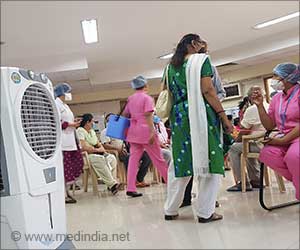Train health administrators first, says Chennai public health expert Kuganantham.
“There is an urgent need for training Indian public health administrators as conscientious and dynamic public health leaders. The WHO’s doomsday scenario in the realm of infectious diseases is a genuine apprehension. It is time all concerned put their shoulders to the wheel and avert such catastrophes,” says Dr.P.Kuganantham, a noted public health expert based in Chennai, the capital of the southern Indian state of Tamil Nadu.It was in the backdrop of the current cholera outbreak in the eastern Indian state of Orissa, Medindia spoke to Kuganantham who is the Chennai Corporation’s Health Officer.
This public health administrator had played a notable role in containing the cholera epidemic twice in the recent past, first time in 1987 when nearly 15,000 cases were reported to be affected by the Cholera epidemic and again five years later.
During the second attack of the epidemic over 20,000 persons were hospitalized, but hardly two per cent of them succumbed to the disease. The efforts that Dr. Kuganantham had taken then earned him widespread appreciation. The World Health Organization too had lauded his initiatives . It was then the new strain of Vibrio cholerae was identified in the communicable diseases hospital at Chennai and came to be known as the Madras strain. (Chennai was then known as Madras.)
Cholera, as we know, is an infectious disease caused by the bacterium Vibrio cholerae. The mode of transmission of the disease is by consuming contaminated water. When subsequent epidemics of the new strain broke out in many places across the world, the Chennai experience came in handy.
Introducing Doxcycline in place of Tetracycline as the drug of choice in the treatment of cholera and rice-based Oral Rehydration Solution (ORS), a homemade remedy, were among Kuganantham contributions. Polio immunization drive too gained a fresh urgency then as health officials identified the poliovirus in the stools of children suffering from diarrhea.
He also felt cholera vaccines were not useful and that it only gave a false sense of protection.
Referring to the availability of abundant seawater, he said it could be used to flush public conveniences regularly. “It is not enough to set up public conveniences. The point is to maintain them properly and flush them all as often as possible,” he said. He also warned that diseases like cholera always manifested as an epidemic every five years.
Dr.Kuganantham seemed to place the onus on the officials themselves and argued against getting into a blame game while discussing the perilous state of public health. However, he refused to touch upon the government response to his proposals.
When asked whether he thought adequate budgetary allocations were made for public health, Kuganantham said, “Whatever the allocations, we must realize that our health administrators themselves do not evince enough interest in promoting public health. It is they who should push for upgrading the health delivery system in this country whereas our medical schools teach doctors only to diagnose a disease and treat it in isolation and not to plan healthcare for the large masses. Our administrators are simply not trained in health management or in health economics. This woeful situation should change first if our public health is to improve.”
Referring to the recent WHO report on possible outbreaks of infectious diseases, Kuganantham regretted that international disease surveillance was yet to get implemented in the real sense in many countries.
Source-Medindia






